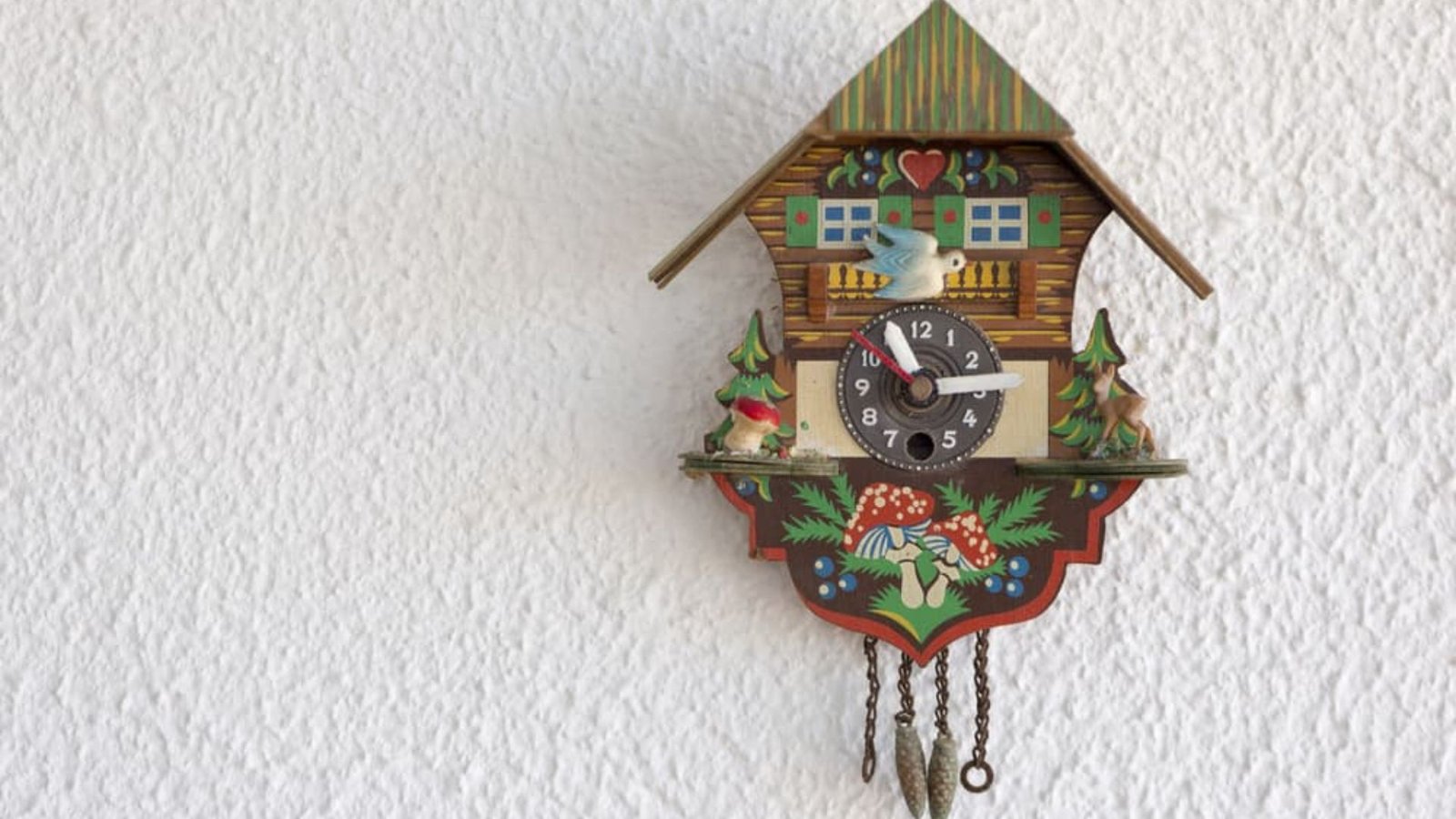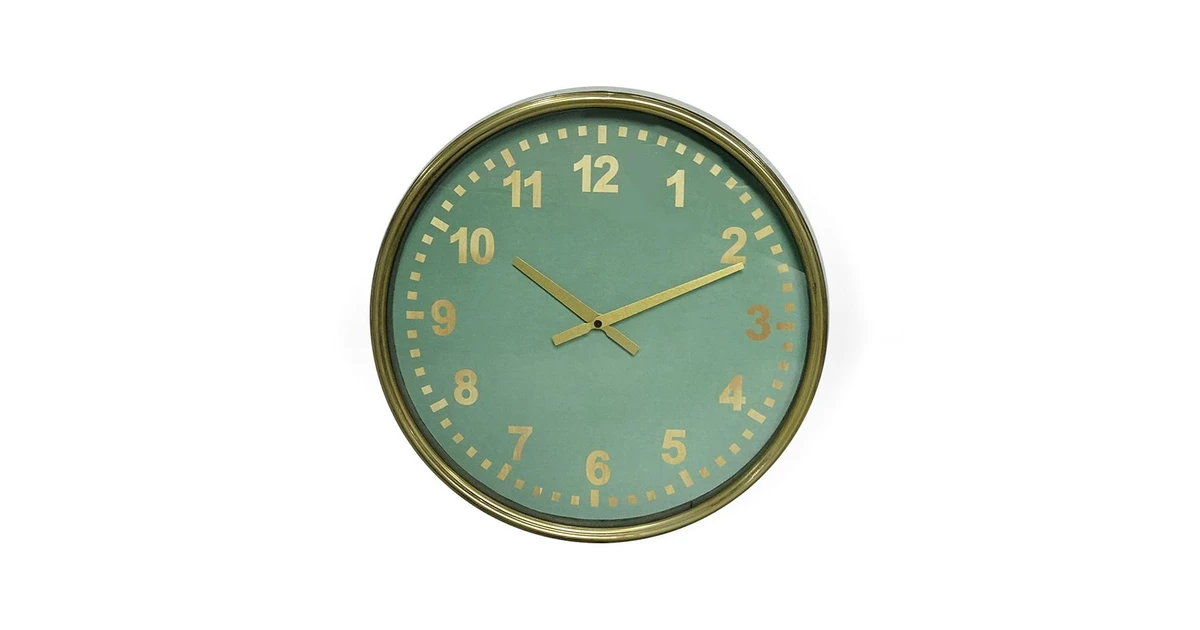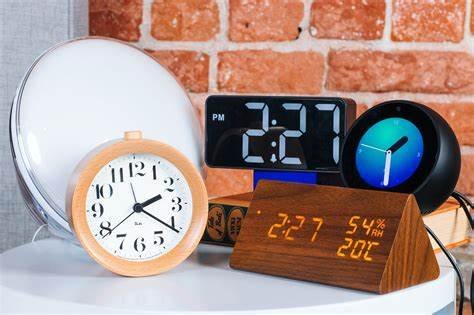Mechanical clocks are intricate devices that rely on gears, springs, and other components to keep accurate time. While they are built to last, they can encounter issues over time due to wear and tear, improper handling, or environmental factors. Here’s a guide to help you troubleshoot common mechanical clock issues and how to fix them.

Clock Stopped Running
One of the most common issues is a clock that suddenly stops running.
- Check if the clock is wound: If your clock is mechanical, it needs to be wound regularly. Make sure the clock has been fully wound according to the manufacturer’s instructions.
- Check for obstructions: Dust, dirt, or small foreign objects can obstruct the gears and mechanisms. Open the clock’s case and carefully inspect the internal parts for any visible obstructions.
- Level the clock: Some mechanical clocks, especially those with pendulums, need to be perfectly level to function properly. Use a spirit level to check and adjust the clock’s position.
Clock Runs Too Fast or Too Slow
If your clock is keeping inaccurate time, running too fast or too slow, it could be due to several reasons:
- Pendulum adjustment: For clocks with a pendulum, the length of the pendulum affects the timekeeping. If the clock is running too fast, slightly lengthen the pendulum by adjusting the screw at the bottom. If it’s running too slow, shorten the pendulum.
- Check the escapement: The escapement controls the movement of the gears. If it’s worn or dirty, it may cause the clock to run fast or slow. Clean and lubricate the escapement as needed or consult a professional if the problem persists.
Chimes Are Out of Sync
If the chimes on your mechanical clock are striking the wrong number of times, they may have fallen out of sync.
- Manual adjustment: Most clocks have a way to manually adjust the chimes. Let the clock run for a full hour and listen to how many times it chimes. If it’s out of sync, adjust the minute hand to the nearest hour and let the clock chime again to reset.
- Reset the clock: Some clocks allow you to reset the chimes by turning the hands forward through the hours until the chimes correct themselves. Be patient, as it may take a few hours for the clock to fully sync.
Pendulum Stops Swinging
For clocks with a pendulum, the pendulum may stop swinging, causing the clock to stop.
- Check the leveling: Ensure the clock is level, as an uneven surface can cause the pendulum to stop. Adjust the clock’s position if necessary.
- Inspect the suspension spring: The suspension spring holds the pendulum and can get bent or damaged over time. If the spring is faulty, replace it to restore proper function.
- Ensure there’s no obstruction: Dust or grime can hinder the pendulum’s movement. Clean the pendulum carefully with a soft cloth.
Clock Hands Stuck or Not Moving
If the clock hands are not moving, or they seem stuck in place, the problem could be mechanical or due to user error.
- Check for tightness: Sometimes the hands of the clock are too tightly fastened, causing them to stick. Loosen the nut holding the hands slightly and test the movement.
- Obstruction between the hands: The hour and minute hands can sometimes touch, especially during movement, causing them to get stuck. Bend the hands slightly apart to ensure they don’t touch.
Clock Striking at Incorrect Time
If your clock strikes at odd times, it may have been manually set incorrectly or become misaligned.
- Manual resetting: Move the hour hand to match the time when the clock strikes. Then, carefully adjust the minute hand to ensure the clock chimes at the correct times going forward.
- Check the movement mechanism: If manual resetting doesn’t work, there may be a problem with the movement that requires cleaning or professional adjustment.
Conclusion
Mechanical clocks are beautiful but complex timepieces that require regular care and maintenance. When issues arise, many can be solved with simple adjustments, cleaning, or proper leveling. However, for more complex problems like a damaged spring or movement issues, it’s best to consult a professional clockmaker. With regular attention and troubleshooting, your mechanical clock can continue to provide accurate time for years to come.




I’m just commenting to make you know of the amazing experience our princess enjoyed reading through your web site. She came to find numerous things, not to mention what it’s like to have a marvelous giving heart to let the mediocre ones completely understand various very confusing things. You undoubtedly did more than my expected results. I appreciate you for showing such practical, dependable, educational and even unique guidance on the topic to Jane.
Alle 82 deutschen Online Casinos aus der White List wurden von uns umfassend getestet
und bewertet. Als einziges unabhängiges Portal, ähnlich wie Stiftung Warentest, und Computer Bild haben wir alle legalen deutschen Online Casinos umfassend getestet.
Der neue Glücksspielstaatsvertrag erlaubt zwar ausdrücklich das Online Glücksspiel, aber nur für Seiten mit einer deutschen Lizenz.
Zwar sind einige Vorzüge wie der deutsche Support und eine Casino App vorhanden, aber im Aktionsbereich könnte etwas aufgebessert werden. Wer noch mehr Abwechslung benötigt, kann eines der über 25 weiteren Glücksspiele wie Rubbelkarten nutzen. Spieler, die viele Bonis beanspruchen möchten und erste Linie Spielautomaten bevorzugen, finden im Hell Spin Casino
eine ausgeschneite Wahl.
References:
https://online-spielhallen.de/spin4bonus-top-casinoseiten-fur-deutschland-2025/
Das Studio ist sofort an der Hochformatanzeige seiner Casinospiele zu erkennen, und da PG
für die Zukunft größere und bessere Veröffentlichungen plant, behalten wir den Anbieter fest im
Auge. Wenn Sie auf der Suche nach kontroversen und
eher für Erwachsene gedachten kostenlosen Demo-Slots sind, dann Nolimit City ist
der Entwickler für Sie. Wenn Sie unsere
Website über iOS besuchen, können Sie kostenlose Demo-Slots ausprobieren, die speziell
für Ihr Gerät optimiert wurden. Das iOS-Betriebssystem, insbesondere der
App Store, war und ist ein großer Anbieter kostenloser Casino-Slots.
Wählen Sie einfach den gewünschten Slot oder das gewünschte Glücksspiel aus
und schon steht Ihnen Demogeld zur Verfügung. Wir bieten Ihnen zahlreiche Funktionen,
mit denen Sie genau das finden, wonach Sie suchen.
Weiter oben auf dieser Seite finden Sie alle
unsere Empfehlungen hier. Es gibt aber einige Online Varianten, bei denen man sich durchaus
gut unterhalten fühlt. So können Sie alle Wettarten und Einsatzmuster ganz ohne Risiko ausprobieren und herausfinden, womit Sie
den meisten Erfolg und die besten Gewinnchancen haben. Zudem können Sie nebenbei immer
wieder einen Blick in die Roulette Regeln zur entsprechenden Variante werfen und
dies direkt beim Gratisspiel ausprobieren. So finden Sie aus allen Top-Games garantiert ein Spiel, das
Ihnen besonders gut gefällt.
References:
https://online-spielhallen.de/lucky-dreams-casino-mobile-app-dein-traum-vom-spielen-unterwegs/
Thus, when you play at a PAGCOR-regulated online casino, you’re contributing to a wider, more meaningful narrative –
of social progress and development. We highlight platforms offering a
broad array of games, attractive bonuses, and user-friendly
interfaces, along with diverse and secure payment methods like
GCash, GrabPay, and PayMaya. Always choose a licensed online casino that supports INR,
offers secure payment methods, and has a good reputation. All in all,
playing at an online casino site in India is generally very safe
if you follow a few simple rules. A leader in India’s casino bonus scene,
BC.Game Casino offers a massive 500% welcome package spread across your first four deposits and a huge 8,000+ game collection. Rajabets offers
one of India’s highest-rated mobile casino apps, with 600+ live
games, smooth navigation, and exclusive mobile-only rewards.
Compare the bonus size, minimum deposit, and the wagering
requirements. Each casino is different, and some would suit your gaming needs
better than others. Online slots also impress with incredibly high payout rates, and since these are games of chance (you have no control over when it pays), you don’t need a strategy or betting system.
Online casinos in the US provide a variety of services to accommodate all your needs;
you just need to know what to look for.
However, they come with many rules and limitations that make it quite difficult
to actually turn the free bonus into real money that can be
cashed out. If you don’t play in line with these restrictions, the casino can refuse to pay out your winnings.
However, with our reviewers constantly on the lookout for new offers, you
can find the latest offers on Casino Guru, too.
Either way, you will be given a list of eligible games on which you can use your bonus.
You can use the free credit on eligible games
across the casino. When you see this kind of bonus, you will only be able to claim the free spins,
bonus funds, or free play from a mobile device.
The app features top slots such as Wolf Run and Wheel of Fortune
Power Wedges by IGT, alongside dozens of exclusive bet365
originals. Each game displays valuable details such as the return-to-player (RTP), volatility level, and number of reels and
paylines when you click its information (i) icon. To keep yourself safe, be sure to check the website of your state’s
gaming commission to ensure your casino of interest has received the proper licensing.
You can even still win real money without having any skin in the
game! Please play responsibly. Free spins are tied to specific slot games, letting you
enjoy titles like Fortunes Zeus or new releases.
References:
https://blackcoin.co/best-live-dealer-online-casinos-in-australia/
Pick the option that fits your needs and start playing with confidence.
Limits vary by method, so you can plan your gaming
sessions without surprises. Support team was polite when I asked about withdrawal times.
Cashouts are consistent and new slots drop often. Been playing here for more than a year.
Cashback came through without hassle, and I like the spending tracker in my account.
The platform demonstrates a serious approach to security through SSL encryption,
data tokenization and mandatory account verification. WinSpirit Casino represents a comprehensive online gambling platform focused on the needs of Australian players.
Modern players value mobility, and WinSpirit meets this need with a
fully optimized mobile platform. Below is a step-by-step
guide plus practical tips on verification, security,
deposits and common issues Australian players run into.
The process is standard for Australian-facing online casinos and is necessary to protect players and comply with operational guidelines.
WinSpirit Casino positions itself as an online casino
aimed at Australian players, supporting AUD payments, a broad
range of pokies and table games, and dedicated assistance for Aussie punters.
Whether you’re playing slots or live dealer games, you can set limits to keep
gaming fun and stress-free. Knowing your Win Spirit casino deposit and withdrawal limits helps you enjoy gaming smoothly.
References:
https://blackcoin.co/amazing-facts-about-online-casino-poker-games-you-should-know/
A period of significant growth has followed, including the redevelopment of the former Macquarie Point
railyards, Parliament Square, and new hotel developments throughout the
city. While Hobart was isolated, it also contained the not insignificant Electrolytic Zinc Company
which was essential for ammunition production. Later that year, along with the military, settlers and
convicts from the abandoned Port Phillip settlement,
the camp at Risdon Cove was moved by Captain David Collins
to a better location at the present site of
Hobart at Sullivans Cove. Despite the rise in migration from
Asia and other non-English speaking regions, Hobart’s population is predominantly ethnically Anglo-Celtic and has the highest
percentage of Australian-born residents among Australia’s capital cities.
The TMAG building, built in 1902 as a new Second Empire style Customs House, is situated
on Constitution Dock and incorporates the Bond (1824) and Commisariat Store buildings (1810), the
latter of which contributed to Hobart’s early street layout when the Hobart Rivulet passed
beside it. Salamanca Place contains many Georgian era buildings, as well as Kelly’s Steps,
which were built in 1839 to provide a short-cut to Battery Point,
a largely residential suburb known for its weatherboard cottages and multi-storey
terraces. It is most notably defined by its large areas of native bushland owing to
its location. During the 20th century, the city itself has received snowfalls at sea level on average only once every
5 years; however, outer suburbs lying higher on the
slopes of Mount Wellington receive snow more often, owing to the
more exposed location coupled with their higher altitude.
If you drive, there is ample free parking which
makes for a nice change from other capital city hotels in places like Sydney and Brisbane where the on-site parking
costs a fortune. The Wrest Point Casino offers a variety of room options across three different accommodation options that form part of the hotel
complex. If you’re looking for a quick bite to eat, Riverview or Boardwalk Snacks are great options.
Free Wi-Fi, sauna, gym, exclusive spa, heated pool, a tennis court, mini waterfront golf and undercover parking are among the hotel’s attractions.
When visitors stay at this hotel in the downtown Hobart
district of Sandy Bay, they will have access to magnificent river
and mountain views.
References:
https://blackcoin.co/8_vip-casinos-uk-high-roller-casinos-fast-withdrawals_rewrite_1/
online casino for us players paypal
References:
http://woorisusan.kr/bbs/board.php?bo_table=free&wr_id=207521
paypal casino online
References:
https://gomyneed.com/profile/tiaralocklear
online betting with paypal winnersbet
References:
https://sigorta.jobs/employer/paypal-casinos-2025-best-online-casinos-accepting-paypal/
online casino for us players paypal
References:
https://allsolution.xyz/employer/online-casino-mit-paypal-einzahlung-die-top-casinos-im-vergleich/
online pokies australia paypal
References:
https://www.mvacancy.com/companies/safe-fast-payouts/
casino con paypal
References:
https://www.refermee.com/companies/fast-payout-real-money-sites/
Không giống với các trang web không rõ nguồn gốc, xn88 đầu tư nghiêm túc vào hệ thống quản lý rủi ro và bảo vệ người dùng. Tất cả các giao dịch tài chính đều được mã hóa, đồng thời nền tảng cung cấp công cụ tự kiểm soát cho người chơi như giới hạn đặt cược và tính năng tự loại trừ. TONY03-01H